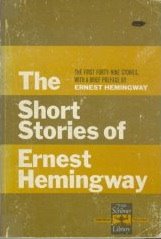 I've never read Kafka, and until a week ago, I'd only heard of him.
I've never read Kafka, and until a week ago, I'd only heard of him.After I started reading The Metamorphosis, I tried explaining the story to Aubrey. A man wakes up transformed into a dung beetle, no explanation is given, and he must face his boss and his family. His family (especially his father) are revolted and force him into his room, where his sister sneaks food to him while he longs to "get better" and have a normal life again while continuing to transform and becoming accustomed to, even liking, his new form. That was a third of the way through the book. Aubrey quoted a line from Annie Hall in which Shelley Duvall remarks that sex with Woody Allen's character is a "very Kafkaesque experience". The smile left her face and she said the book sounded depressing, to which I hesitated.
"It's not, it's a metaphor for isolation and loneliness," I retorted. But that didn't help, and after further reflection, it makes it sound even more depressing. It's not though, oddly enough.
Kafkaesque is a term for surreal, illogical situations. It can also be accompanied by a sense of impending danger. Gregor Samsa, the metamorphosized, ill-fated protagonist, accepts his fate, tries to live accordingly, and dies a lonely death totally ostracized from his family. But it's a lot more surreal, funny, and playful than that. Really. I think it's that the tone is upbeat. Gregor is hopeful, he still has dreams, and his situation is funny.
I really enjoyed this book. It's short but filled with colorful characters and situations, so if you've got a couple hours and want to read something that will really blow your mind, try this. Kafka is a great writer. Interesting, also, is the type of writer he was. He felt compelled to write, and once that was established, he said that it consumed him, transformed him, made him think of nothing else, much like Gregor Samsa (Samsa = Kafka) the longer he was a dung beetle. He liked to watch his characters die a spectacular but bittersweet death, much the way he envisioned he would go, mourned into oblivion. It's fascinating, really.
I'm a big fan of surrealism, and The Metamorphosis was definitely surreal. On that note then, I must recommend this book. But, if you don't have time, even though that's no excuse (because it's a scant 60 pages), there's an interesting interpretation here.


 My desire to read
My desire to read 
